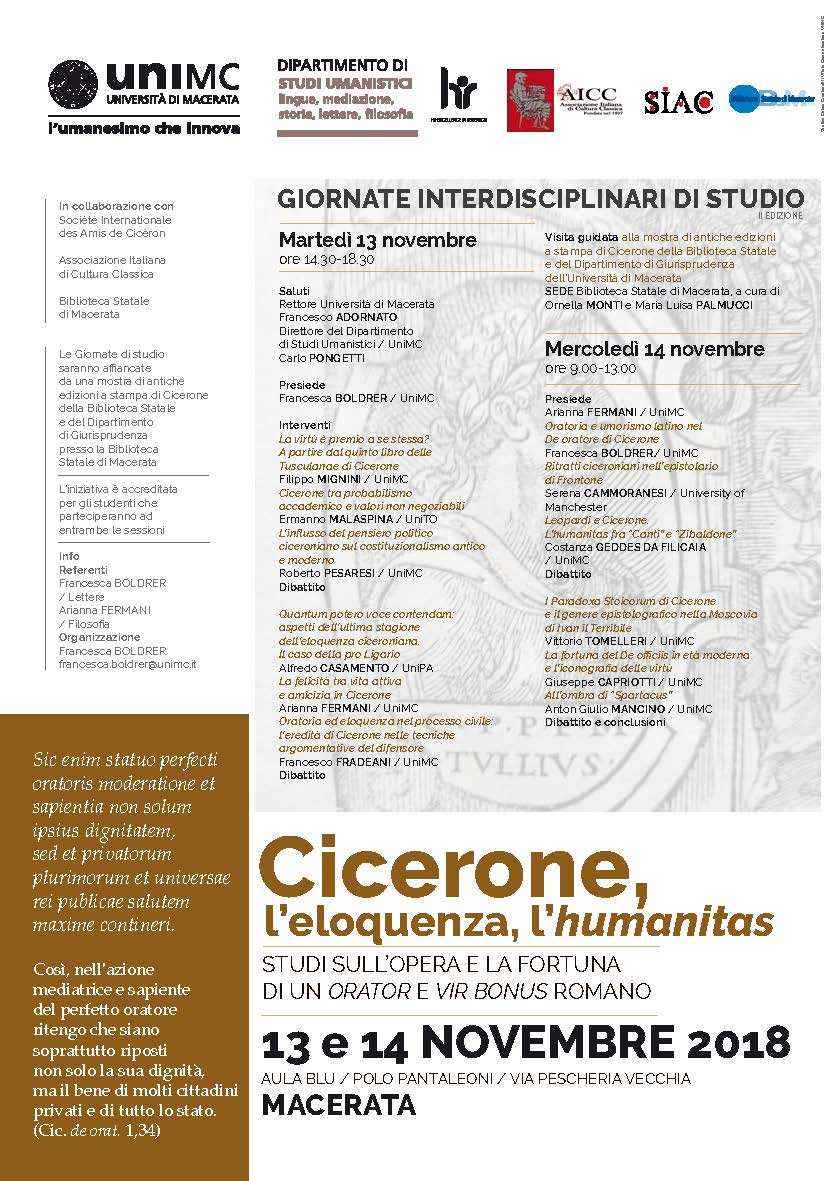Oratoria ed eloquenza nel processo civile: l’eredità di Cicerone nelle tecniche argomentative del difensore - Oratory and Eloquence in a Civil Proceedings: Cicero's Legacy in the Defendant's Argumentative Techniques
DOI:
https://doi.org/10.13135/2532-5353/4124Abstract
Riassunto L’articolo prende spunto dal “mito” di Cicerone, le opere, gli insegnamenti,
finanche la sua vita, per dimostrare la straordinaria importanza della cultura
romana classica nel diritto processuale civile moderno, in tutto il mondo occidentale.
In particolare, se da un lato la migliore dottrina, ma anche la giurisprudenza,
richiamano spesso l’esperienza giuridica del mondo antico, dall’altro l’articolo
sottolinea l’estrema utilità, ancora oggi, della retorica ciceroniana nell’attività forense,
sia scritta sia orale. In questo contesto, si affrontano temi fondamentali
come la ricerca della verità nel giusto processo e la tensione che esiste tra “fare
presto” e “fare bene”, anche in applicazione del principio costituzionale della ragionevole
durata previsto dall’art. 111. Da ultimo, in una prospettiva de iure condendo,
si auspica un ritorno agli antichi fasti del processo orale, concentrato ed
immediato, magari con l’aiuto delle più moderne tecnologie informatiche.
Abstract The paper draws inspiration from Cicero’s “legend” (treatises, advices,
even his life), to demonstrate the extraordinary importance of classical Roman
culture in the modern legal practice of civil procedure, everywhere in the Western
world. In particular, the paper argues that the best doctrine, and also jurisprudence,
often recall the juridical experience of the ancient Roman world, and it
also underlines the tremendous usefulness, even today, of Ciceronian rhetoric in
a lawyer’s actions, both written and oral. In this context, this paper deals with
fundamental issues such as the uncovering of truth in a fair trial and the tension
that exists between “doing quickly” and “doing well”, even in application of the
Italian constitutional principle of reasonable delay provided by clause 111. Finally, in a de iure condendo perspective, it hopes for a return to the ancient glories of the condensed, immediate and oral trial, perhaps with the help of the most modern technologies.
Downloads
Downloads
Published
How to Cite
License
Authors who publish with this journal agree to the following terms:
- Authors retain copyright and grant the journal right of first publication with the work simultaneously licensed under a Creative Commons Attribution License that allows others to share the work with an acknowledgement of the work's authorship and initial publication in this journal.
- Authors are able to enter into separate, additional contractual arrangements for the non-exclusive distribution of the journal's published version of the work (e.g., post it to an institutional repository or publish it in a book), with an acknowledgement of its initial publication in this journal.


 Ciceroniana On Line is recognised by ANVUR (the National Agency for the Evaluation of the University System and Research) as a CLASS A journal for the Sciences of Antiquity, Philology, Literature and History of Art (
Ciceroniana On Line is recognised by ANVUR (the National Agency for the Evaluation of the University System and Research) as a CLASS A journal for the Sciences of Antiquity, Philology, Literature and History of Art ( The journal is included in DOAJ. The DOAJ listing of the journals is available at
The journal is included in DOAJ. The DOAJ listing of the journals is available at  The journal is indexed in
The journal is indexed in  The journal has been included in ERIH PLUS. The ERIH PLUS listing of the journals is available at
The journal has been included in ERIH PLUS. The ERIH PLUS listing of the journals is available at 

